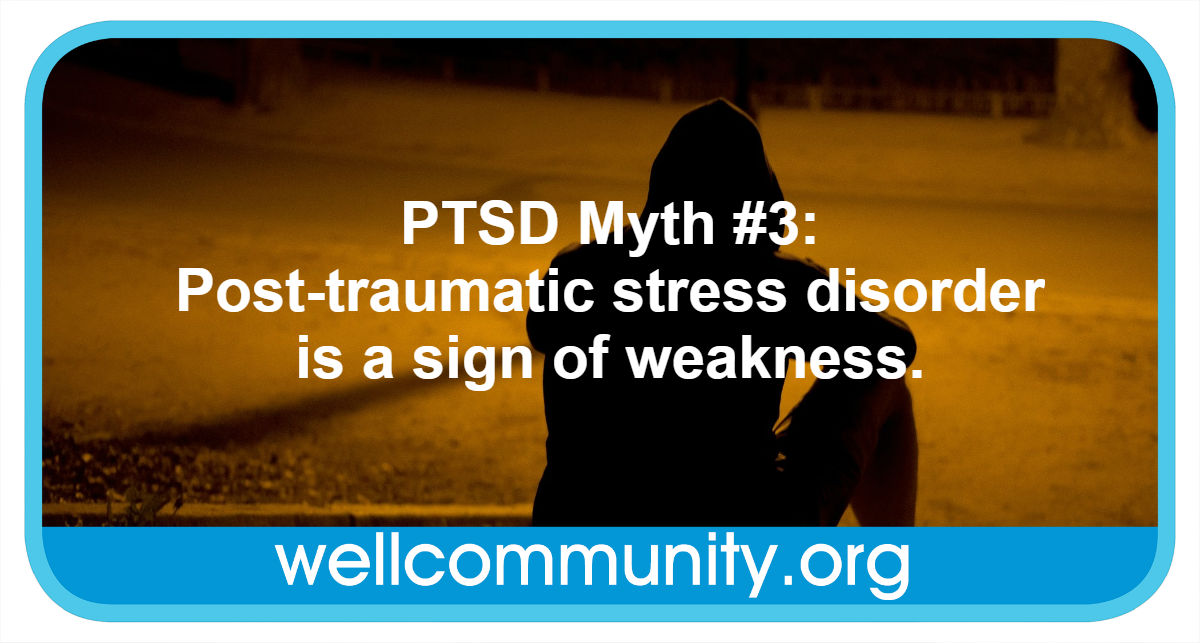 Post-traumatic stress disorder (PTSD) impacts 3.6% of Americans according to the National Alliance on Mental Illness. While the symptoms of this mental health issue, such as hypervigilance, intrusive thoughts, flashbacks, nightmares and trouble concentrating, are relatively well-known, many myths about PTSD are also prevalent. These misconceptions contribute to stigma, and can prevent those who are suffering from seeking help.
Post-traumatic stress disorder (PTSD) impacts 3.6% of Americans according to the National Alliance on Mental Illness. While the symptoms of this mental health issue, such as hypervigilance, intrusive thoughts, flashbacks, nightmares and trouble concentrating, are relatively well-known, many myths about PTSD are also prevalent. These misconceptions contribute to stigma, and can prevent those who are suffering from seeking help.
Myth #1: PTSD always occurs right after a traumatic experience.
Although the symptoms of PTSD usually appear within three months of a traumatic experience, some people develop PTSD years after a troubling event. And many live with their symptoms for months or years before receiving a diagnosis.
Myth #2: Only military veterans experience PTSD.
Just as those who’ve served in the armed forces aren’t the only individuals who’ve endured trauma, they’re not the only ones who suffer from PTSD. The condition can impact anyone of any age. Those who’ve witnessed a tragedy, disaster or violence, those who’ve endured abuse and those who’ve experienced an accident or injury can all develop post-traumatic stress disorder.
Myth #3: PTSD is a sign of weakness.
PTSD isn’t caused by a flaw in character or a lack of strength. It’s a disorder of the brain with a biological basis. Numerous factors can influence a person’s risk for developing PTSD after a traumatic experience, including the type, severity and longevity of the experience, brain chemistry, personality and an individual’s support system.
Myth #4: People suffering from PTSD are violent.
Despite some stereotypes popularized by the media, the vast majority of those living with PTSD aren’t violent or dangerous. Drug and alcohol abuse can make someone who’s struggling more prone to violence. However, treatment for the disorder dramatically decreases the likelihood of dangerous behavior.
Myth #5: PTSD can’t be treated.
Although PTSD can’t be cured, it is very treatable. Medication, psychotherapy, self-management strategies and service animals can all help those who are struggling manage their condition and lead full lives.
At The Well Community, we provide support and a place to belong for individuals in the Dallas area who are struggling with PTSD and other mental illnesses. Help us continue to serve them.
